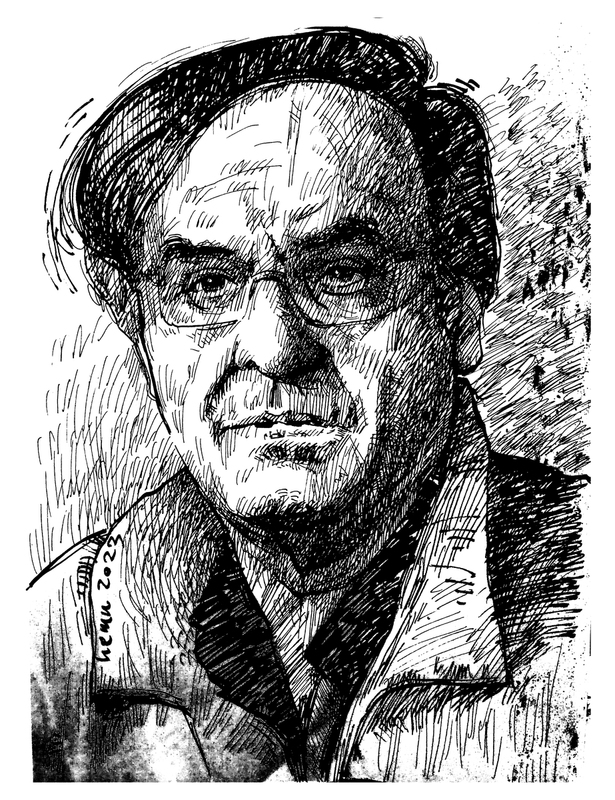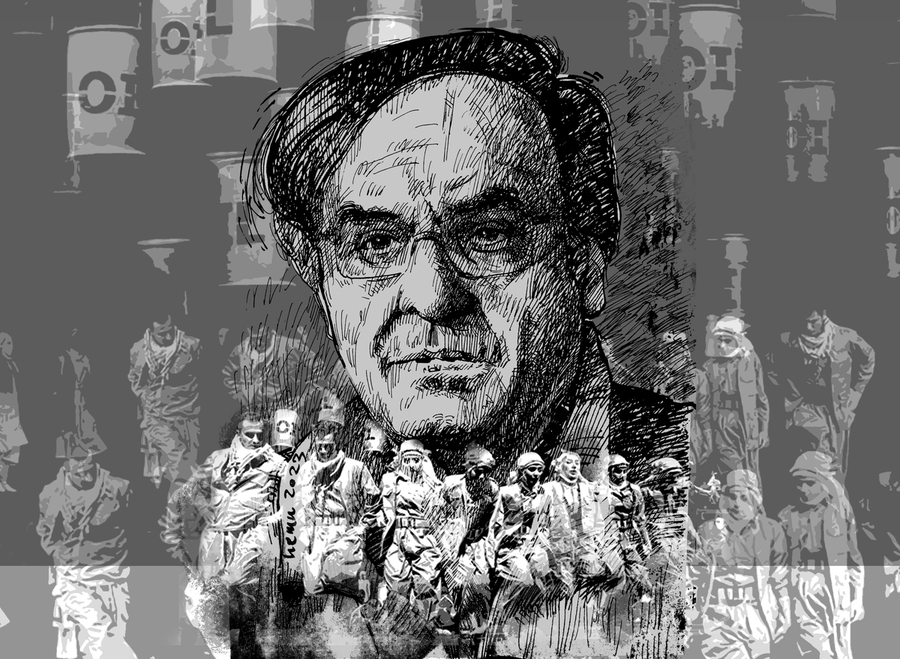Dr. Qutbaddin Sadeghi was born in 1952 in the Jorawa neighborhood of Sna (Sanandaj), the eastern part of Kurdistan. He is one of the leading directors, actors, writers, translators, and university professors in the field of theater in Iran.
For the first time, he and his brother go to a dark hall, but later he learns that it is a cinema.
In 1975, he received a bachelor's degree in theater from the University of Fine Arts of Tehran University, and later, he went to the Sorbonne University of Paris and received a master's and doctorate in theater. In 1985, he returned to Iran and continued to teach theater, directing, acting, etc.
Dr. Sadeghi has written more than fifty plays and directed more than fifty-two plays. He has published eighteen books and acted in many famous Iranian series and films. He has been conducting training and conferences for art seekers at the Theater Academy in Tehran for many years. As an academic and expert, Dr. Sadeghi has been invited to many scientific, historical, and artistic conferences in the eastern part of Kurdistan, Iran, and even internationally.
He says:
“I was educated and my artistic talent was based on university studies, so I worked on Shakespeare and Mueller. Then I looked back to where our culture and traditions are. We have to look for our historical sources; Eastern theater should exist and create the foundation of our local art. First, we turned to classics such as Ferdowsi, Attar, Nezami, etc. and then we turned to religions. This country has different people and geographies, so they have had their own religions and rituals to connect with the world of nature and metaphysics throughout history such as Newroz.
Another way I have selected is working on historical books. Like the historical book of Jahangir Jawini, which I have rewritten according to the seven lost tribes, or the historical book of Bayhaqi, which I have rewritten entitled Afshin and Budalaf.
Another way is the cultural theaters that were common in Iran in previous times and were performed on the streets and at meetings for welfare.”

Character Designer: Hemn Qaramani
On this basis, Dr. Sadeghi's works include three stages. The first step is to direct world-famous plays such as Hamlet, The Escapin Schemer, etc. Then goes to ancient Iranian texts and their myths such as Arash and Mooy Jam. In the next stage, he returned to Kurdistan and produced in two different fields. The first is the history of Kurdistan, such as "The Era of Innocence" and "The Anthem of a Hundred Thousand Loving Ophelia". The other is the treasure of oral literature and has written plays based on most of the famous Kurdish verses.
In recent years, Dr. Sadeghi has launched an extensive attack on the misrepresentation of Median history rewritten by the Achaemenid government and its supporters. According to Dr. Qutbaddin, the historical myths of Zahak have been misrepresented by the authorities. This fraud began in the reign of Darius I and continued.
As he points out, lions and snakes were sacred in Mede's culture, but the Iranians hated snakes and lions and carved images of dead lions and snakes on rocks.
As a talented and experienced artist, Dr. Qutbaddin has always staged the tragedies of the Kurdish people and has always supported historical and artistic conferences. He even had a great influence on the expansion of dance groups and sending them abroad for international festivals. The first Kurdish dance group in the East part of Kurdistan, which won the first prize in the International Dance Festival of Nations of the World, was founded by Dr. Sadeghi.
This Kurdish teacher brought hundreds and even thousands of people from Kurdistan and large cities like Tehran to the stage and taught them expertly. He has been invited to most theater festivals in Tehran, Tabriz, Sna, Mashhad, Isfahan, Sulaymani, Kirkuk, Erbil, Arab countries, etc., as a judge and selection committee.









